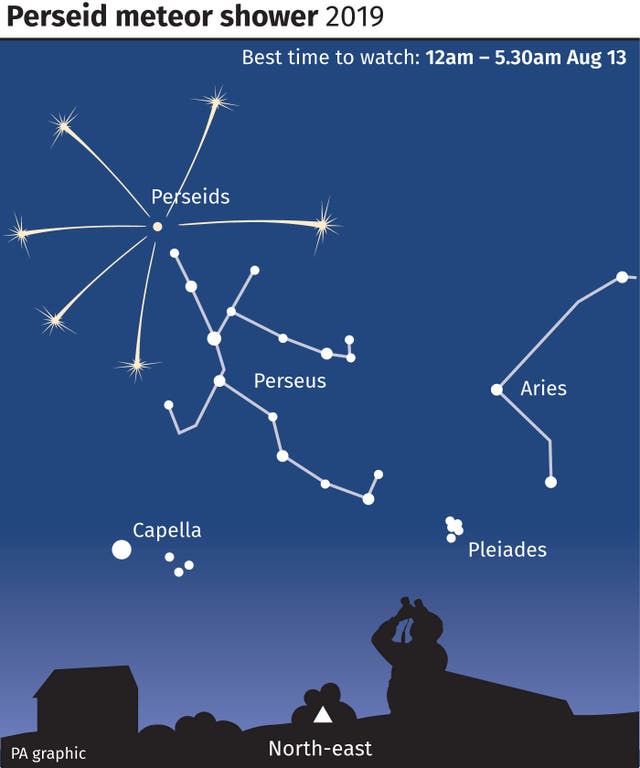Perseid meteor display set to light up night skies
Peak viewing is set to take place between midnight and 5.30am.

A display of celestial fireworks is set to peak late on Monday night as the Earth flies through a cloud of cometary dust.
If skies are clear, the Perseid meteor shower should be visible across the UK from around midnight until 5.30am, according to Royal Museums Greenwich.
The event is one of the highpoints in the celestial calendar, occurring each year as the Earth ploughs through dusty debris left by Comet Swift-Tuttle.
The meteors, mostly no bigger than a grain of sand, burn up as they hit the atmosphere at 58 kilometres (36 miles) per second to produce a shooting stream of light in the sky.
Peak temperatures can reach anywhere from 1,648 to 5,537 C (3,000 to 10,000 Fahrenheit) as they speed across the sky.
The meteors are called Perseids because they seem to dart out of the constellation Perseus.

“It should look like a decent night for most places,” Bonnie Diamond, a meteorologist at the Met Office said.
“Weather tonight is largely dry for many but there is potentially some showers affecting western coasts later this evening and generally dying out overnight, where it might be cloudier. So there will be a bit of cloud around but some really good gaps.”
Forecasts suggest that Wales, central England and southern England may offer the best weather to see the display, as well as clear spells in Scotland and Northern Ireland, but north-west England may suffer from cloudy conditions.
To make the best of the meteors, observers should avoid built-up areas and try to find an unobstructed view to the east, experts suggest.





